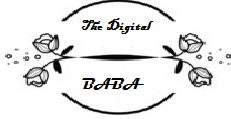
Ghostwriting is the act of writing a book, article, or other written work, and then allowing someone else to claim authorship of the work. The person who writes the work is known as the ghostwriter, while the person who is credited as the author is known as the “author byline.”
Ghostwriting is often used in situations where the person who is credited as the author does not have the time, expertise, or writing skills to produce the work themselves. In such cases, the ghostwriter may be paid a flat fee, a percentage of the royalties, or a combination of both for their services.
Understanding the client
Understanding the client is a crucial step in the ghostwriting services process. This includes understanding their goals, target audience, and desired outcome for the project.
One way to understand the client is to ask them specific questions about their project, such as what message or theme they want to convey, who their target audience is, and what format or style they prefer. It’s also important to understand the client’s timeline and budget for the project, as well as any specific requirements or guidelines they may have.
Additionally, it’s important to understand the client’s unique voice and writing style, so that you can ensure that the final product aligns with their expectations. This can be done by reviewing their previous work or by conducting an interview to understand their ghostwriting services style and preferences.
It’s also important to understand the client’s level of involvement in the project. Some clients may want to have a hands-off approach and provide minimal input, while others may want to be heavily involved in the writing process.
Importance of crafting a compelling narrative
Crafting a compelling narrative is important for several reasons.
First, a compelling narrative can help to engage and captivate the audience, making them more likely to continue reading or listening to the story. This is particularly important for works of fiction, but can also be relevant for non-fiction such as memoirs, biographies, and even business reports.
Second, a compelling narrative can help to clarify and reinforce the message or theme of the story. By structuring the story in a way that is easy for the audience to understand and follow, the narrative can help to make the message or theme more memorable and impactful.
Third, a compelling narrative can help to establish trust and credibility with the audience. By telling a story that is honest, authentic, and well-researched, the author can build a reputation as a trustworthy and knowledgeable source.
Lastly, a compelling narrative can help to create an emotional connection between the audience and the story. By evoking emotions such as empathy, suspense, or humor, the story can make the audience feel more invested in the story, and more likely to remember it.
Developing the narrative
Once a ghostwriter has a clear understanding of the client’s goals, target audience, and desired outcome for the project, they can begin to develop the narrative.
One way to develop the narrative is to start by outlining the main plot, characters, and themes of the story. This can be done by creating a rough summary of the story, outlining the main events and conflicts, and identifying the key characters and their motivations.
Next, the ghostwriter can begin to flesh out the details of the story by creating more detailed character profiles, outlining the setting and atmosphere, and developing the story’s structure and pacing. This can include determining the point of view, setting the scenes, and creating a sense of tension and conflict.
It’s important to keep the client’s target audience in mind while developing the narrative, and to ensure that the story will resonate with them.
The ghostwriter can also consider incorporating elements of storytelling techniques such as foreshadowing, symbolism, and imagery to enhance the narrative and make it more compelling.
Once the narrative is developed, the ghostwriter can begin ghostwriting services the first draft, incorporating feedback and revisions from the client as necessary. The process of developing the narrative may require multiple revisions until it achieves the desired outcome.
Writing and editing
Writing and editing are important steps in the ghostwriting services process.
Writing involves putting the developed narrative into words, creating a draft that can be reviewed and edited by the client. It’s important for the ghostwriter to write in a style that is consistent with the client’s voice, and to ensure that the story flows smoothly and is easy to follow.
Editing is the process of reviewing and revising the written work to improve its overall quality. This can include correcting grammar and spelling errors, ensuring consistency in the writing, and making sure that the story flows smoothly and makes sense.
The ghostwriter should also pay attention to the client’s preferences and requirements during the writing and editing process. The client may have specific guidelines or requirements that the ghostwriter must adhere to.
The ghostwriter should also be prepared to make revisions and incorporate feedback from the client during the editing process. This may involve multiple rounds of editing to ensure that the final product meets the client’s expectations.
When the writing and editing process is complete, the client will review the final product and make any final revisions before it is ready for publication or presentation.
Legal and ethical considerations
There are several legal and ethical considerations that a ghostwriter must be aware of when working on a project.
One legal consideration is copyright law. The ghostwriter must ensure that they have the legal right to use any material they include in the work, and that they are not plagiarizing any existing content. Additionally, the ghostwriter must ensure that the final product does not infringe on any existing copyrights or trademarks.
Another legal consideration is contract law pro cleaning ae. The ghostwriter should have a clear and legally binding agreement with the client that outlines the terms of their work, including compensation, deadlines, and ownership of the final product.
From an ethical perspective, it’s important for the ghostwriter to be transparent with the client about their role in the project, and to obtain the client’s consent for the work to be completed under a fiction ghostwriting services arrangement.
The ghostwriter should also be honest about their qualifications and experience, and not misrepresent themselves or their abilities to the client.
Additionally, it’s important for the ghostwriter to respect the client’s privacy and not reveal any confidential information about the client or the project without their consent.
By being aware of and adhering to these legal and ethical considerations, a ghostwriter can ensure that they are providing a professional and responsible service to their clients.


